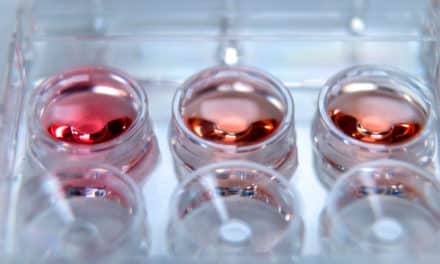If you are about to turn 35 and want to have children, but for the moment you are not considering it in the short or medium term, ask your gynaecologist to assess your ovarian reserve. It is extremely easy, with an ultrasound and an analysis is enough, and once you get the results, ask him/her if it could be indicated, in your case, to do a treatment to preserve your fertility. We often believe that it is an unnecessary expense and that nothing will happen to wait a few more years, but it is not true. Eggs age, and faster than we do. With each passing year, especially after 35, their quality decreases and, with it, the chances of achieving a pregnancy.
You may be wondering why doctors do not explain it and so much information is missing. What happens is that on a social level motherhood is considered a personal issue, and, out of respect for that privacy, professionals do not usually raise this issue openly with their patients, unless they consult it. Nevertheless, a large part of women resorts to assisted reproduction due to fertility problems associated with delayed maternity. In fact, from a biological and reproductive point of view, starting at age 35 a woman is considered too old to be a mother. That is why it is essential to be well informed and then, make the decision that best suits our interests.
In this article, Dr Marta Devesa, specialist in Assisted Reproduction at our centre, points out five good reasons why it is advisable to preserve fertility, and to do it before reaching 36 years of age.
- At 35 there is only 10% of the initial ovarian reserve. Unlike men, we do not produce thousands of eggs each month like they produce sperm. At birth, a female baby already has all the eggs that she can potentially use throughout her life. And that reserve (about two million) drops to between 500,000 and 300,000 when it reaches puberty, and it continues to decrease over the years, like fertility. In addition, in each menstrual cycle, about 1,000 oocytes are lost, so that, in practice from the first period to menopause, the number of eggs that a woman can use does not exceed 450.
- Delaying motherhood halves your chances of getting pregnant naturally. Over the years, in addition to reducing the number of eggs in your reserve, their quality deteriorates, and that also reduces the chances of achieving a pregnancy naturally by 50% compared to the moment of maximum fertility, which for women it is in the decade of the 20 years.
- If you freeze eggs before age 36, the response to ovarian stimulation treatment, in general, is better, and you will need fewer eggs to achieve pregnancy in the future, because they are of better quality.The younger the age, the greater the ovarian reserve and, therefore, the greater response to the ovarian stimulation treatment, which implies more frozen eggs and of a theoretically better quality, so the chances of success will be higher if you do the treatment before turning 36. To give you an idea: to have a 50% chance of having at least one child, if you freeze eggs before the age of 35 you need to have about 8 frozen eggs, but if you freeze them at 38, you need about 15, almost double!
- After the age of 40, the chances of conceiving and having a child spontaneously are reduced to 6%.After the age of 40, the chances of achieving a pregnancy that culminates in the birth of a baby are 6%. With the help of in vitro fertilization (IVF) we achieve better results, but at those ages IVF cannot compensate for the impact of age, so sometimes it is necessary to resort to an egg donation. Hence the interest in cryopreserving oocytes when young.
- Vitrified eggs can be kept this way for many years without losing their quality conditions, which allows you to decide with greater freedom when you want to be a mother. In fact, it has been proven that they can be used for up to ten years after vitrification. Although it is not advisable to wait that long. The only deadline is set by your own age, since, although there are no specific regulations, scientific societies advise against performing assisted reproduction treatments for women over 50, due to the risks and complications associated with pregnancy at that age. In our centre, in addition, the maintenance cost for conservation is free for the first five years.
If you decide to delay your motherhood and want to know more about fertility preservation, please contact us.














